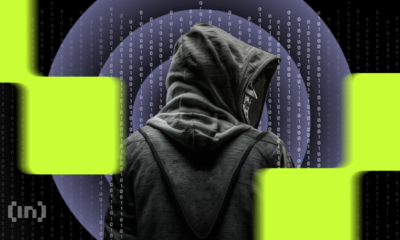Regulation
Upbit & Other South Korean Exchanges Suffer With New Crypto Law In Effect

On July 19, 2024, the Act on the Protection of Virtual Asset Users came into effect in South Korea. The new crypto law aims to create a more secure environment for virtual asset users and establish a sound order in the virtual asset market. However, the immediate impact on trading volumes across major South Korean crypto exchanges, including Upbit, has been significant. These exchanges reported notable declines in their trading volumes.
Impact On Upbit & Other South Korean CEXs
Upbit, founded in October 2017 by Dunamu, quickly became the largest crypto exchange in South Korea. Moreover, the Upbit exchange has maintained a leading position in the market owing to its user-friendly interface and a wide range of supported cryptocurrencies.
However, in the past 24 hours, Upbit’s trading volume plummeted by 29.4%, dropping to $1.50 billion, according to CoinGecko. Also, this significant decline underscores the market’s initial reaction to the new regulatory environment.
Founded in 2013, Bithumb is one of South Korea’s oldest and most well-known cryptocurrency exchanges. It has consistently ranked among the top 50 exchanges in terms of trading volume and user base. Despite its prominence, Bithumb experienced a 24.7% drop in trading volume, reaching $425.22 million in the past 24 hours.
Coinone, established in 2014, has positioned itself as a major player in the South Korean crypto market. It offers a robust trading platform and various services including staking and lending. Coinone took the hardest hit among the major exchanges, with trading volumes plunging by 38.4% to $23.36 million. Moreover, this steep decline reflects the market’s heightened sensitivity to regulatory changes.
As one of South Korea’s pioneering exchanges, Korbit was founded in 2013 and has been instrumental in driving the adoption of cryptocurrencies in the country. Korbit mirrored the impact on Coinone with a 38.4% to $5.07 million over the past 24 hours.
Also Read: Hong Kong Legislator Questions Transparency of HKMA Stablecoin Sandbox
Overview Of The New Crypto Regulation
The Act on the Protection of Virtual Asset Users aims to address various gaps in the previous regulatory framework, which primarily focused on anti-money laundering measures. Key provisions of South Korea’s new crypto law include:
1. Protection of Users’ Deposits and Assets: Virtual asset service providers (VASPs) must keep customers’ deposits in safe custody at banks and pay interest on these deposits. Users’ virtual assets must be segregated from the VASPs’ assets.
2. Insurance and Reserve Funds: VASPs are required to insure against liabilities from hacking or network failures or set aside a reserve fund for such contingencies.
3. Regulation of Unfair Trading Activities: The Act mandates surveillance for suspicious transactions. It also requires immediate reporting to South Korea’s Financial Supervisory Service (FSS). Those engaged in unfair trading activities face severe penalties, including criminal punishment or financial penalties.
4. Supervision and Sanctioning Powers: The Financial Services Commission (FSC) and the FSS are granted the authority to supervise, inspect, and sanction VASPs. This includes issuing corrective orders, suspending business operations, and imposing administrative fines.
Moreover, in preparation for the new law, financial authorities and VASPs have been working closely to ensure compliance. The South Korea‘s FSC prepared detailed subordinate statutes, and the FSS offered on-site consultations and a roadmap for VASPs.
Additionally, a pilot test was conducted to assess readiness. The Digital Asset Exchange Alliance (DAXA) and 20 virtual asset exchange service providers also developed best practice guidelines to support self-regulation within the industry.
Also Read: Crypto Titans Bet On Donald Trump’s Win For SEC Shake-Up
The presented content may include the personal opinion of the author and is subject to market condition. Do your market research before investing in cryptocurrencies. The author or the publication does not hold any responsibility for your personal financial loss.













✓ Share: